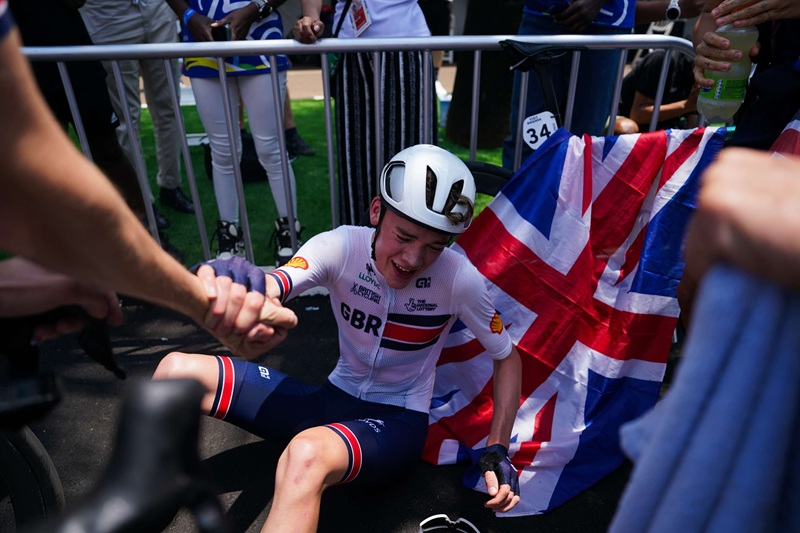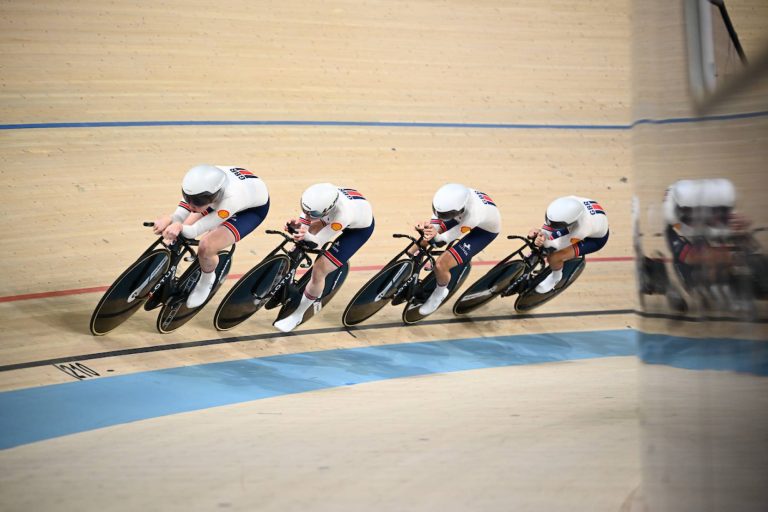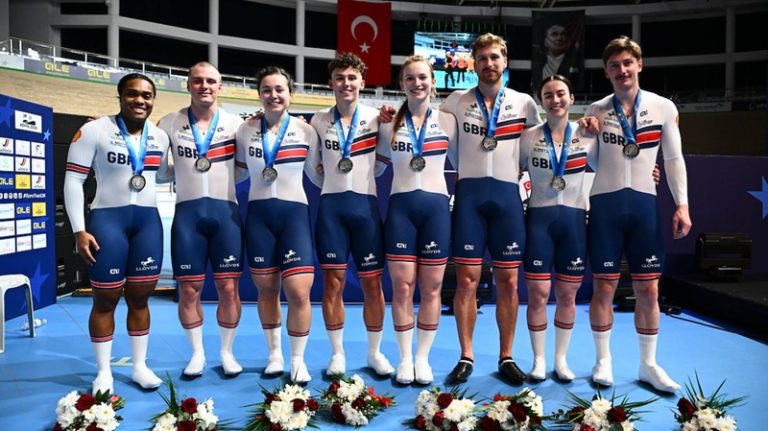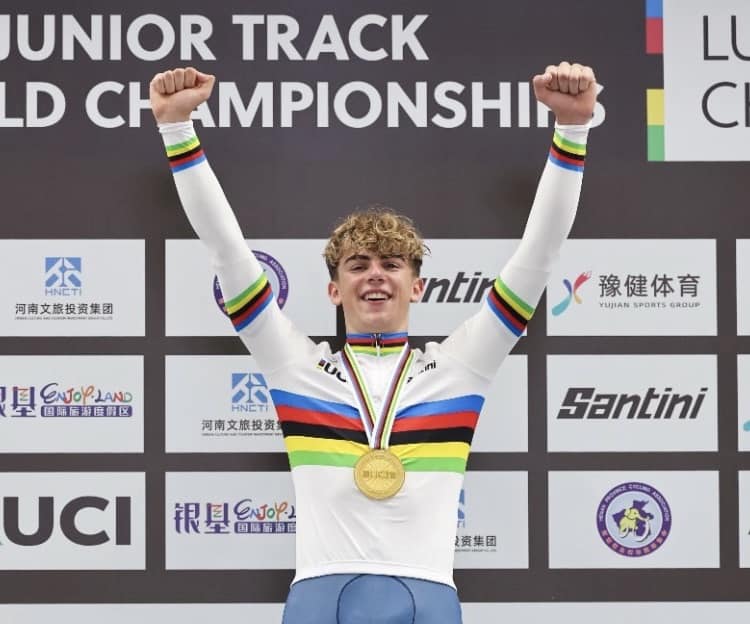In Kigali, Rwanda, British cycling experienced a landmark moment. Harry Hudson became the very first Briton to win the men’s junior road race world title. At just 18 years old, the Harrogate Nova Race rider delivered an astonishing solo performance, holding off the chasing pack on the brutal final climbs of the Rwandan capital. Behind him, France’s Johan Blanc and Poland’s Jan Michal Jackowiak completed the podium, but the day belonged to a rider who dared to attack, who suffered, and who clung on to deliver a piece of history for his country.

This triumph, unprecedented in the history books, symbolises both the rise of a new British generation and Hudson’s resilience. Where so many of his compatriots had fallen short in the past – from Geraint Thomas to Tom Pidcock, and even Sebastian Grindley, who finished runner-up last year in Zurich – the teenager struck a decisive blow. His exploit echoes those of great names who first announced themselves in the junior ranks before going on to dominate the sport, from Remco Evenepoel to Mathieu van der Poel. Yet on this Friday in Kigali, it was the rainbow jersey that settled on the shoulders of a young man realising he had just written a page of cycling history.
The manner in which Hudson claimed the title was as impressive as it was unexpected. The race promised to be attritional from the outset – seven laps of a punishing circuit, 119 kilometres with 2,671 metres of climbing, including the notorious Kimihurura cobbled climb (1.3 km at 6.3%) tackled on every lap, not to mention the fierce heat and altitude. It was on this unforgiving terrain that the Briton made his move, launching a bold attack with just over 35 kilometres remaining. As he later admitted, it wasn’t part of the plan: “I just saw an opportunity, the others seemed to be watching each other after a tough climb. I thought some riders would come with me, but suddenly I was alone.”
What started as a speculative dig turned into a heroic solo ride. The favourites, caught off guard by Hudson’s audacity, hesitated, and that hesitation proved fatal. His gap hovered, never more than half a minute, often closer to 15 seconds, but crucially, it never collapsed. He held off the relentless pursuit of Johan Blanc and Jan Michal Jackowiak, even as the kilometres ticked down and the legs began to fail. At the foot of the final cobbled ascent, his advantage was barely 15 seconds. Hudson later admitted he thought it was all slipping away: “I was dead, I was cracking. I thought I was going to be caught on the last lap.”
And yet, somewhere deep in the pain, he found the strength. Halfway up the climb, he glanced back and saw Blanc losing ground. That fleeting look confirmed his dream was intact. On the flat run-in to the finish, Hudson finally knew he had it, crossing the line 16 seconds clear, disbelief and sheer joy etched across his face.
This victory transcends sport alone. It marks a historic first for Great Britain, a nation that has enjoyed enormous success at elite level and in the women’s categories – with champions such as Nicole Cooke, Lucy van der Haar, Cat Ferguson, and, most recently, Zoë Backstedt – but had never crowned a junior man on the road. “It’s crazy, I can’t believe it. Winning a world title, I never thought it would happen,” Hudson said at the finish, still in shock, before receiving congratulations from none other than Mark Cavendish, his compatriot and former elite world champion. It was a symbolic passing of the torch: the recognition of an established champion for a rising star.
Hudson’s rainbow jersey did not come out of nowhere. This season, he had already won the junior edition of Liège-Bastogne-Liège, the Classic Région Sud U19, and a stage of the Tour de Cantabria. He is also the reigning British junior hill climb champion, proof of his versatility and resilience across varied terrain. The Rwandan circuit, with its relentless gradients and harsh conditions, was a perfect test of both qualities. Looking ahead, his future is already mapped out. From 2026, he will join the Lidl-Trek Future Racing development squad, following in the footsteps of Grindley. With teammates Max Hinds and Matthew Peace also finishing inside the top five in Kigali, the collective performance underlined Britain’s unprecedented strength in depth at this level.
Hudson’s prospects are now tantalising. By donning the rainbow jersey, he enters an elite club of junior world champions, many of whom went on to become Grand Tour winners, Classics specialists, or even elite world champions. The parallels are hard to ignore: could Kigali 2025 be remembered as the starting point of a glittering international career? The teenager himself, despite the euphoria, remains grounded: “I’ll see where it takes me, but just getting on my bike already makes me happy.”
With this victory, Harry Hudson hasn’t just won a bike race – he has possibly opened a new chapter for British juniors, showing that boldness, even in the face of uncertainty, can lead to glory. Rwanda will remember it, and so too will the annals of British cycling, forever enriched by a triumph that was long overdue.



